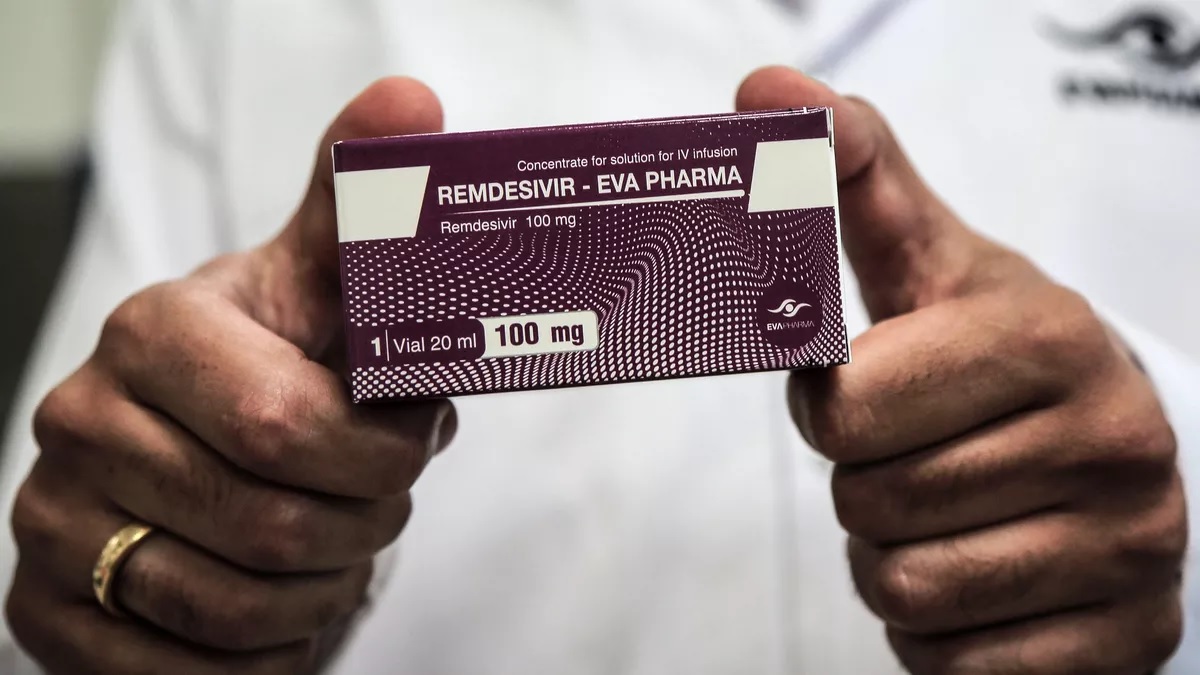RIO DE JANEIRO, BRAZIL – Remdesivir, the first drug approved in Brazil with an indication in the package insert for the treatment of Covid-19, can reduce the hospitalization time for patients with the disease, according to ANVISA, the National Health Regulatory Agency.

Friday, March 12th, the agency authorized the use of the drug in the country in patients over 12 years of age, weighing at least 40kg and suffering from pneumonia requiring oxygen supply, but who are not submitted to invasive mechanical ventilation, such as intubated patients.
It relied on clinical studies that show a reduction of approximately 5 days in hospitalization for patients who used the drug compared to the placebo group (who were not given the drug), and argued that it could be important at a time when the country is faced with the collapse of its healthcare system in several states.
The drug neither prevents infection nor cures the disease, according to what science has shown so far. And it should only be used in hospitals. “We are not talking about a cure, but rather about an important help in this situation we are experiencing,” says the Health Regulator’s general manager for biological products and drugs, Gustavo Mendes.
In November last year, the World Health Organization had stated that the use of remdesivir against Covid-19 was not recommended, because it had not proved capable of reducing deaths from the disease. But agency experts said that the studies that led to registering the drug in Brazil were conducted to address another question: the possibility of reducing hospitalization time for infected patients with respiratory distress.
“The data show that treatment with remdesivir can prevent progression of the disease caused by the coronavirus,” says the agency’s manager of safety and efficacy assessment, Renata Soares. The agency’s conclusion is based on the analysis of three clinical studies with the drug.
“There was a reduction in patients’ hospitalization time, so we considered it to be another therapy for Covid-19,” she adds, stressing the critical pandemic moment in Brazil. The drug must be administered by intravenous application. “The use is restricted to hospitals so that patients can be monitored,” Soares says.
At least 50 countries have already approved the use of Remdesivir to help treat Covid-19. The drug was approved for emergency use in the United States in May last year and is also authorized in European countries.
Although it is an antiviral, there is no scientific data supporting its ability to reduce patients’ viral load. Therefore, individual clinical pictures must be considered.
“This issue [of viral load reduction] will be assessed at a later time,” explains Soares. It should not be used to prevent Covid-19, for example. The drug is intended to help relieve the burden on the Brazilian healthcare system, when the vaccination pace – the only alternative to reduce the chances of contracting the disease – is still slow.
For now, there is no clear perspective on how quickly Remdesivir may be incorporated into the National Health Service SUS on a large scale. It is an expensive drug, which costs an average of US$3,120 (about R$17,000) per treatment.
A medicine commission comprised of several ministries, such as Health and Economy, and chaired by ANVISA has yet to define the cap on the medicine’s value. In Brazil, only Gilead, the patent holder that applied for registration of the drug with the agency, is allowed to market the drug.
“This is a separate procedure that will now be discussed,” says Gustavo Mendes. He points out that without the cap being set, it is difficult to release the product.
Asked why the agency made this decision at this time – given that it had been analyzing the drug since mid last year and other countries had authorized its use – the technicians pointed out that the emergency authorization procedure had not been established in Brazil and that they considered the data still insufficient for a conditional registration, which enables the addition of new information later on upon signing terms of commitment.
“Registration can be granted conditionally, but the committee felt it needed further data to make this decision,” says Mendes.
AstraZeneca’s vaccine gets final registration
The Health Regulatory Agency also granted AstraZeneca and Fiocruz the final registration of their Covid-19 vaccine.
The immunizer, already in use in the country, had only been granted emergency use registration. With the decision, large-scale use is allowed, the delivery of finished doses by Fiocruz is authorized, and room for commercial sales is also created. The reason for this is that registration was granted both to Fiocruz – which negotiates only with the government and international organizations – and to the AstraZeneca pharmaceutical company.
“It opens space for commercial operations, and this will be defined by the companies themselves,” points Mendes.
This week, AstraZeneca’s vaccine was temporarily suspended as a precaution in 5 countries (Romania, Thailand, Bulgaria, Denmark and Finland) after some people who had been administered the vaccine developed blood clots. However, there is no significant increase in cases nor an established correlation.
ANVISA, which will continue to monitor potential adverse effects even after registration, as well as efficacy data for specific groups – explained that the cases observed in these countries were related to a specific batch that did not reach Brazil, which so far has only distributed doses manufactured by the Indian Serum Institute.
In Brazil, 5 people from a universe of over 2 million who were administered the vaccine presented similar reactions, but the agency says it does not see a causal relationship with the immunization. The patients, elderly and susceptible to strokes and thrombosis, are being monitored.
The European Medicines Agency, which investigates the relationship between vaccines and such reactions, stresses that there is still no evidence of a link between cases of thrombosis in the five countries mentioned and the vaccine.
Source: El Pais

